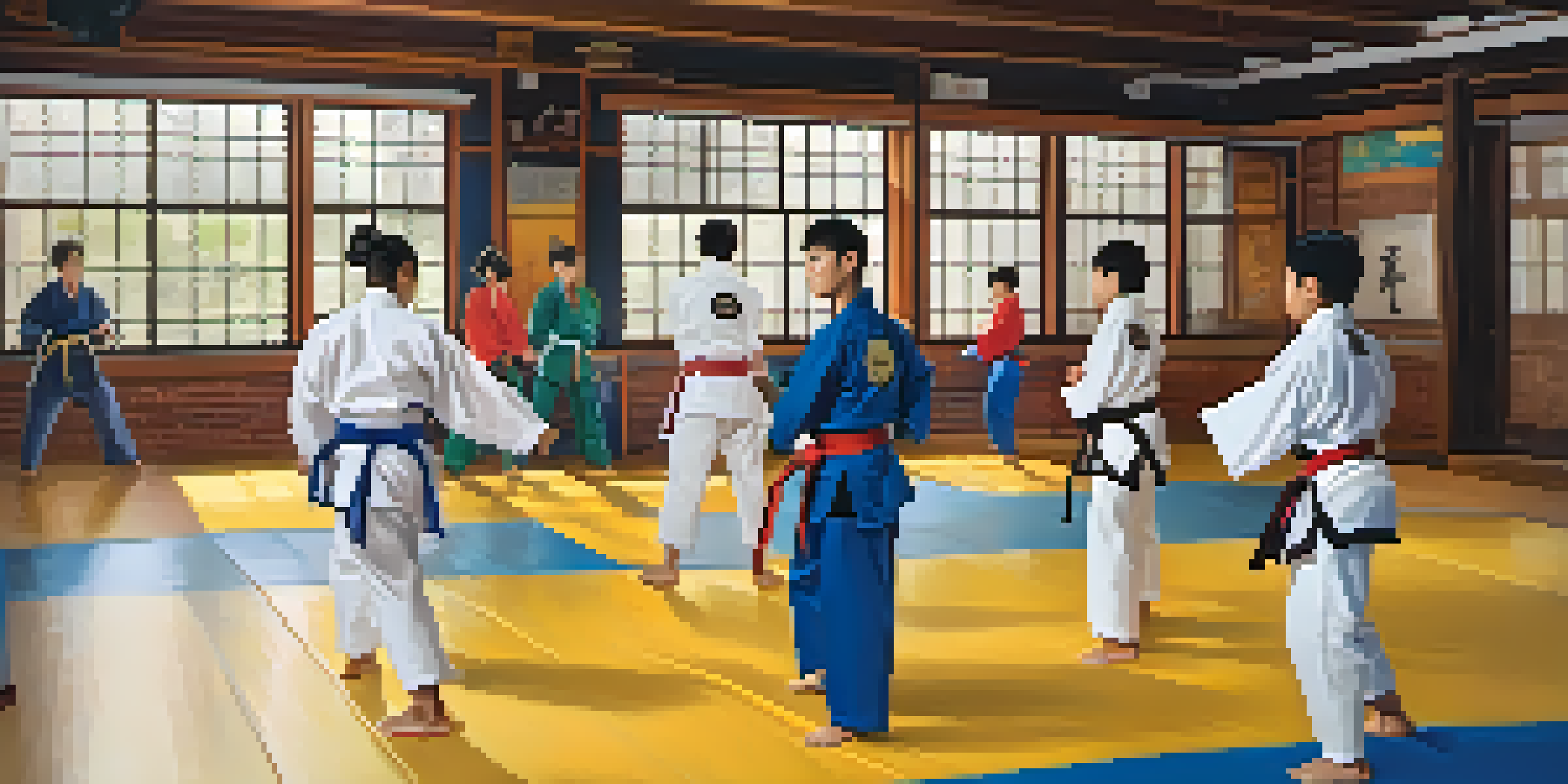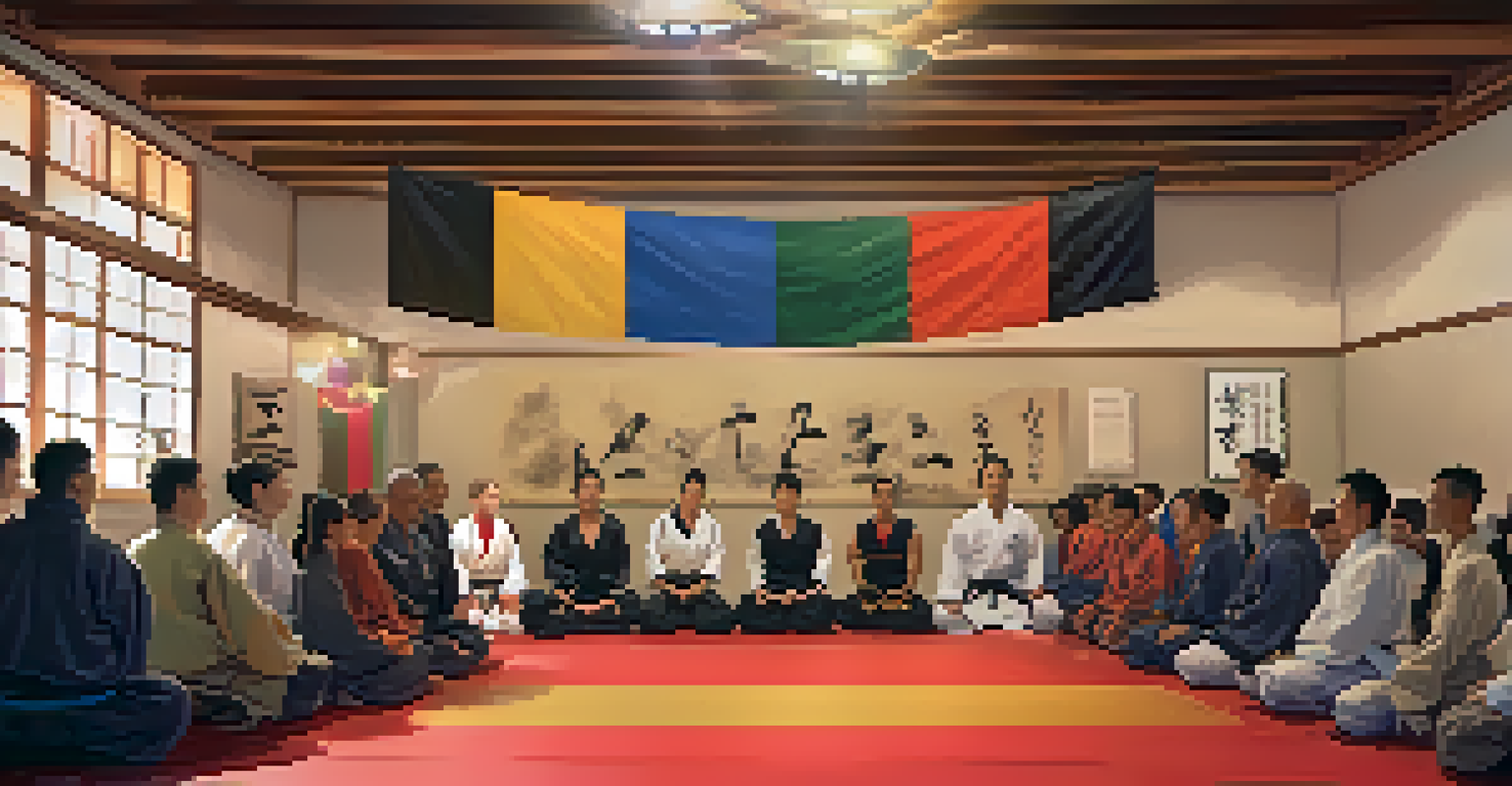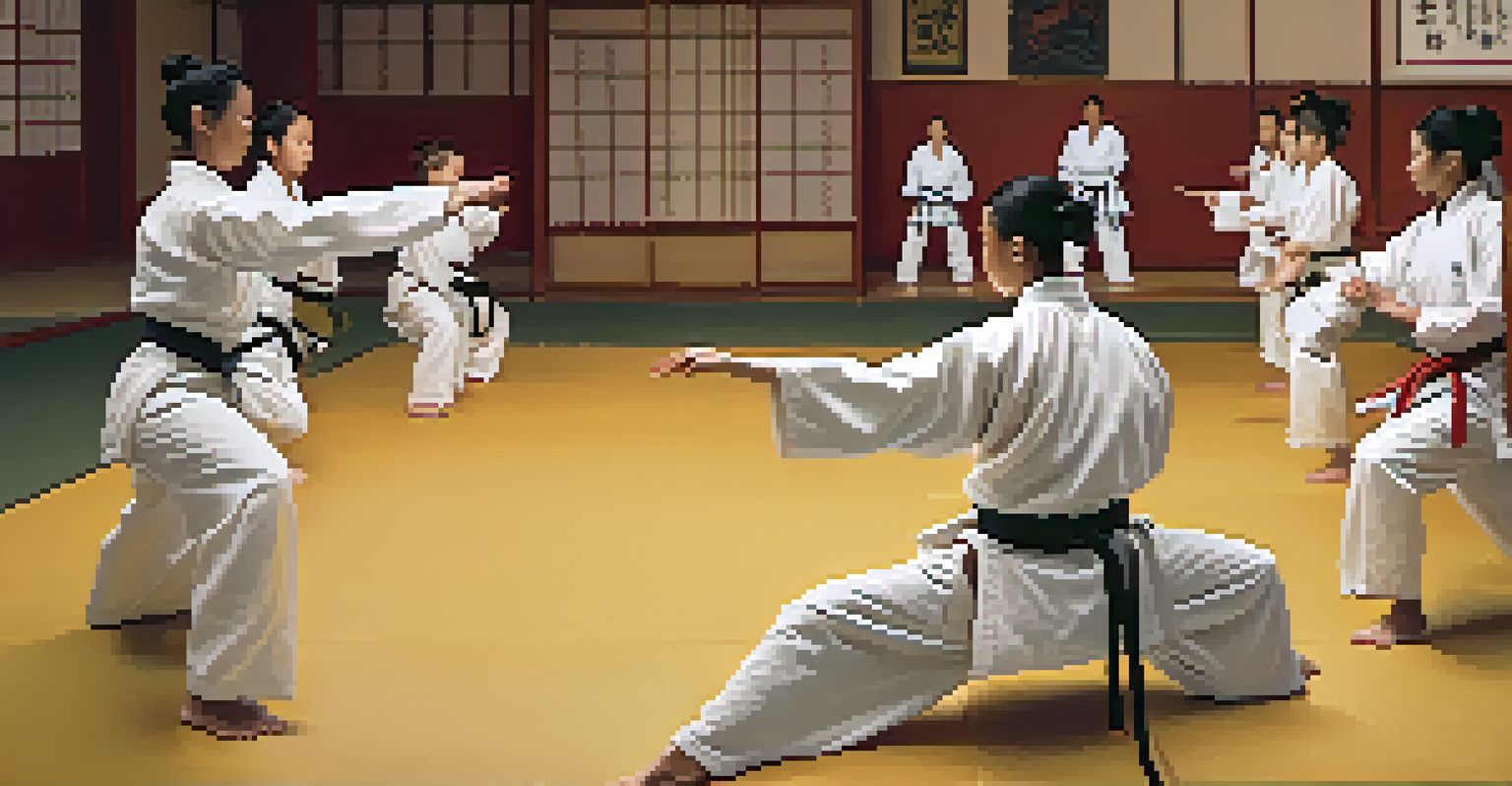Martial Arts and Non-Binary Identities: An Inclusive Approach

The Intersection of Martial Arts and Identity
Martial arts have long been a realm of discipline, respect, and personal growth. However, as we explore the connection between martial arts and identity, we see an opportunity to embrace inclusivity, particularly for non-binary individuals. These practices can empower everyone, regardless of gender identity, promoting a sense of belonging.
The beauty of martial arts is that it transcends gender, allowing individuals to express their true selves without the constraints of societal expectations.
In many martial arts schools, traditional gender norms may inadvertently dictate how students interact and train. By breaking down these barriers, we create an environment where all practitioners can thrive. This shift not only benefits non-binary students but enriches the culture of the dojo as a whole.
Imagine a dojo where everyone, no matter their identity, feels comfortable expressing themselves. This vision can come to life through intentional practices that prioritize respect and understanding, making martial arts accessible to all.
Breaking Down Gender Norms in Training
Training in martial arts often involves sparring and partner work, which can be influenced by traditional ideas of masculinity and femininity. To create an inclusive environment, it's essential to recognize that strength and skill are not confined to gender. By focusing on individual abilities rather than gendered expectations, practitioners can foster a more accepting atmosphere.

For instance, consider a scenario where a non-binary person is paired with a partner who respects their identity. This creates a more effective learning environment, where both can focus on technique rather than conforming to gender roles. Such partnerships can help dispel stereotypes and encourage mutual respect.
Embracing Inclusivity in Dojos
Creating an inclusive environment in martial arts empowers all practitioners, particularly non-binary individuals, fostering a sense of belonging.
By promoting an inclusive mindset, martial arts schools can become safe havens for everyone. This not only enhances the experience for non-binary students but also cultivates empathy and understanding among all participants.
Creating Safe Spaces in the Dojo
Building a safe space within the dojo is crucial for non-binary practitioners to feel welcome. This means establishing clear guidelines that promote respect and inclusivity, ensuring that everyone understands the importance of using correct pronouns and terms. A supportive environment allows students to express their identities without fear of judgment.
Inclusivity is not just a word; it's a practice that embodies respect and understanding for all identities within the community.
For example, a dojo might implement regular discussions about inclusivity and respect, educating all members on the significance of non-binary identities. This creates a culture of awareness and acceptance, where everyone is encouraged to learn and grow together. Such initiatives reinforce the idea that martial arts is for everyone.
When students feel safe, they are more likely to engage wholeheartedly in their training. This not only benefits their personal development but also enhances the dojo's community spirit.
Role Models: Non-Binary Figures in Martial Arts
Having visible role models in martial arts who identify as non-binary can significantly impact aspiring practitioners. These individuals demonstrate that success in martial arts is achievable regardless of gender identity. They inspire confidence and encourage others to pursue their passion without feeling constrained by societal norms.
For instance, a non-binary martial artist who excels in competitions can serve as a beacon of hope for those who might feel marginalized. Their achievements highlight the importance of diversity in the sport, showcasing that talent and dedication transcend gender identities.
Adapting Training for All Identities
Implementing gender-neutral language and diverse training techniques enhances the learning experience for everyone, making martial arts accessible.
Promoting these role models within the community can galvanize support and foster a sense of unity among practitioners. Celebrating diverse identities enriches the martial arts landscape, making it more vibrant and inclusive.
Inclusive Training Techniques for All
Adapting training techniques to accommodate non-binary individuals can enhance the learning experience for everyone. This might involve using gender-neutral language during instruction to eliminate assumptions about students' identities. Such an approach encourages all participants to feel valued and respected.
Incorporating diverse training methods can also help cater to different learning styles, allowing all students to engage meaningfully. For instance, using visual aids and hands-on demonstrations can accommodate various preferences without tying them to gender norms.
By embracing inclusive training techniques, martial arts instructors can ensure that every student has the opportunity to flourish. This creates a more dynamic and enriched learning environment where everyone can contribute.
Community Building Through Inclusivity
An inclusive dojo fosters a sense of community where practitioners support one another, regardless of their identities. This supportive network can be particularly beneficial for non-binary individuals, who may often face challenges outside the dojo. Building relationships founded on respect and understanding can create lasting bonds among students.
For example, organizing community events that celebrate diversity can help strengthen connections within the dojo. These events encourage practitioners to share their experiences, fostering an environment where everyone feels seen and heard.
Building Community Through Diversity
A supportive dojo community celebrates diverse identities, strengthening bonds among practitioners and enhancing their overall martial arts journey.
Ultimately, a strong community enhances the overall martial arts experience, providing a safety net for all practitioners. The more inclusive the environment, the stronger the bonds that form among its members.
The Future of Martial Arts and Non-Binary Inclusion
Looking ahead, the integration of non-binary identities into martial arts will likely continue to evolve. As more schools recognize the importance of inclusivity, we can expect to see positive changes in training practices and community dynamics. This evolution not only enriches the martial arts landscape but also reflects broader societal shifts towards acceptance.
With ongoing education and awareness, martial arts can lead the way in promoting inclusivity. By sharing resources and strategies, schools can collaborate to create a more unified approach to diversity within the sport.

Ultimately, embracing non-binary identities within martial arts is not just a trend; it's a necessary step towards creating a more equitable world. Together, we can build a future where everyone feels empowered to train and grow, regardless of their gender identity.